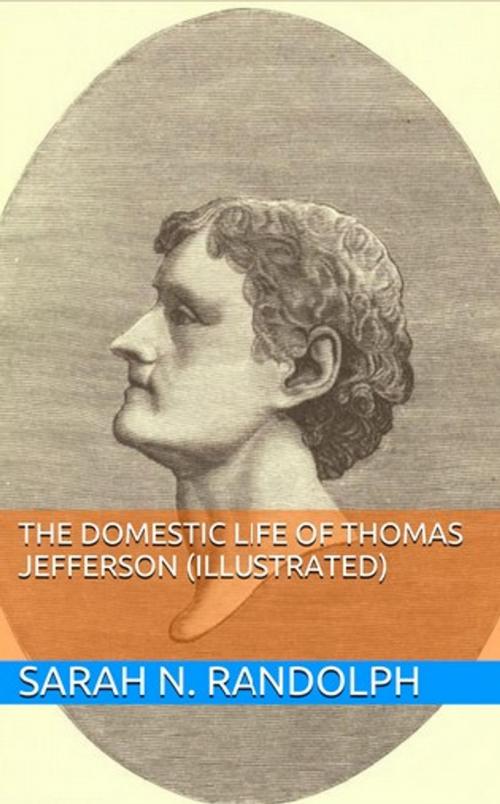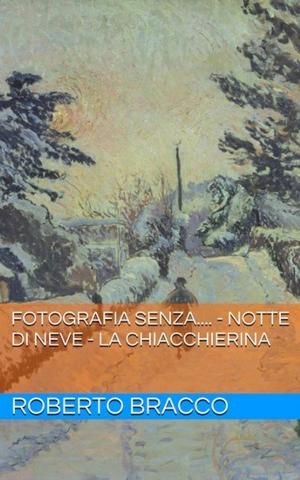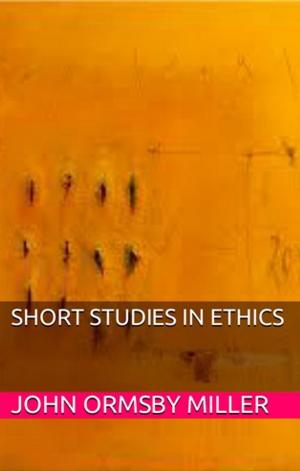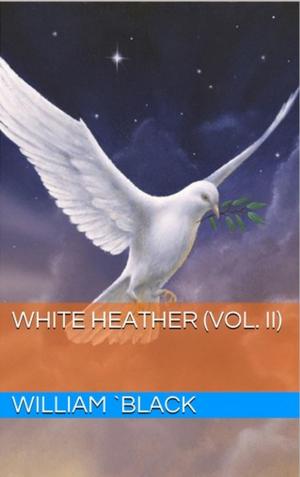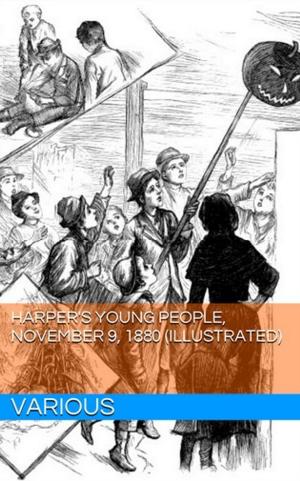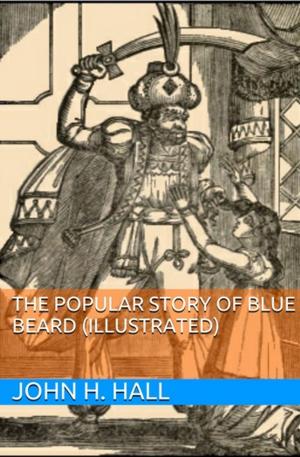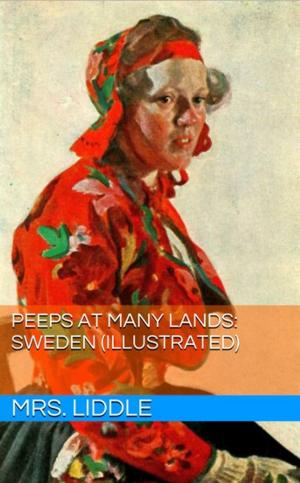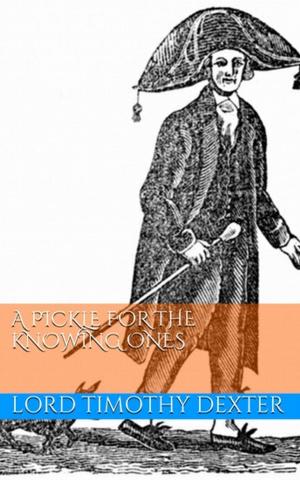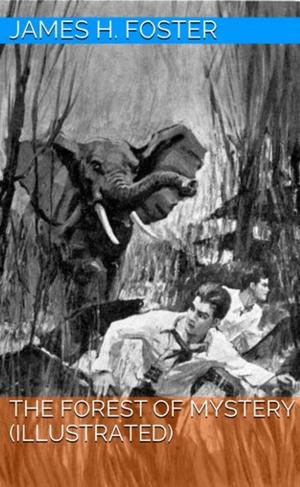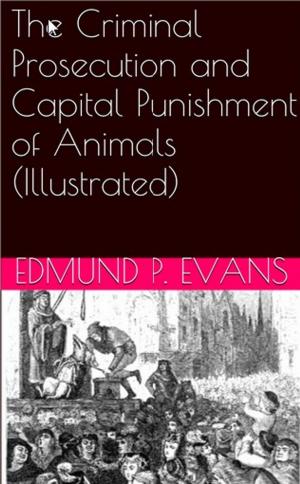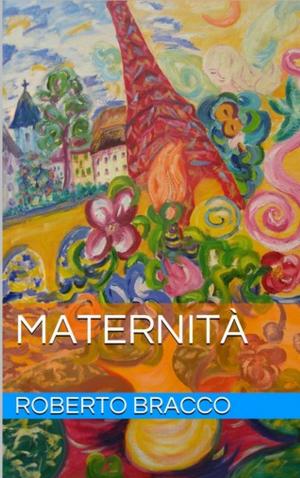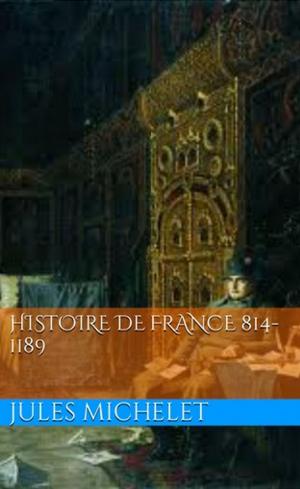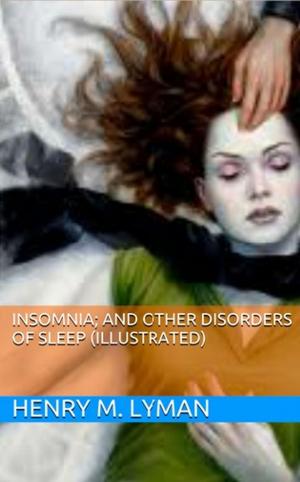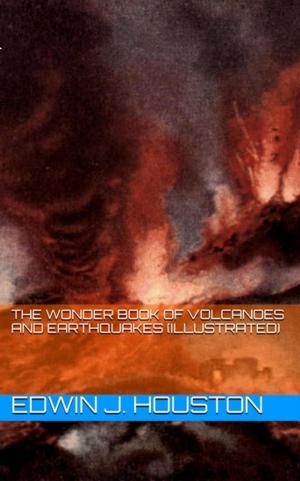The Domestic Life of Thomas Jefferson (Illustrated)
Nonfiction, History, Americas, United States, Colonial Period (1600-1775)| Author: | Sarah N. Randolph | ISBN: | 1230000156178 |
| Publisher: | Lost Leaf Publications | Publication: | July 30, 2013 |
| Imprint: | Language: | English |
| Author: | Sarah N. Randolph |
| ISBN: | 1230000156178 |
| Publisher: | Lost Leaf Publications |
| Publication: | July 30, 2013 |
| Imprint: | |
| Language: | English |
THE DOMESTIC LIFE OF THOMAS JEFFERSON.
COMPILED FROM FAMILY LETTERS AND REMINISCENCES,
BY HIS GREAT-GRANDDAUGHTER, SARAH N. RANDOLPH.
PREFACE.
I do not in this volume write of Jefferson either as of the great man or as of the statesman. My object is only to give a faithful picture of him as he was in private life—to show that he was, as I have been taught to think of him by those who knew and loved him best, a beautiful domestic character. With this view I have collected the reminiscences of him which have been written by his daughter and grandchildren. From his correspondence, published and unpublished, I have culled his family letters, and here reproduce them as being the most faithful witnesses of the warmth of his affections, the elevation of his character, and the scrupulous fidelity with which he discharged the duties of every relation in life.
I am well aware that the tale of Jefferson's life, both public and private, has been well told by the most faithful of biographers in "Randall's Life of Jefferson," and that much of what is contained in these pages will be found in that admirable work, which, from the author's zealous devotion to truth, and his indefatigable industry in collecting his materials, must ever stand chief among the most valuable contributions to American history. I propose, however, to give a sketch of Jefferson's private life in a briefer form than it can be found in either the thirteen volumes of the two editions of his published correspondence, or in the three stout octavo volumes of his Life by Randall. To give a bird's-eye view of his whole career,[viii] and to preserve unbroken the thread of this narrative, I quote freely from his Memoir, and from such of his letters as cast any light upon the subject, filling up the blanks with my own pen.
Jefferson's executor having a few months ago recovered from the United States Government his family letters and private papers, which had been exempted from the sale of his public manuscripts, I am enabled to give in these pages many interesting letters never before published.
No man's private character has been more foully assailed than Jefferson's, and none so wantonly exposed to the public gaze, nor more fully vindicated. I shall be more than rewarded for my labors should I succeed in imparting to my readers a tithe of that esteem and veneration which I have been taught to feel for him by the person with whom he was most intimate during life—the grandson who, as a boy, played upon his knee, and, as a man, was, as he himself spoke of him, "the staff" of his old age.
The portrait of Jefferson is from a painting by Gilbert Stuart, in the possession of his family, and by them considered as the best likeness of him. The portrait of his daughter, Martha Jefferson Randolph, is from a painting by Sully. The view of Monticello represents the home of Jefferson as it existed during his lifetime, and not as it now is—a ruin.
THE AUTHOR.
June, 1871.
CONTENTS.
CHAPTER I.
Jefferson's Birthplace.—Sketch of his early Life.—Character of his Parents.—His Grandfather, Isham Randolph.—Peter Jefferson's Friendship for William Randolph.—Randolph dies, and leaves his young Son to the Guardianship of Jefferson.—His faithful Discharge of the Trust.—Thomas Jefferson's earliest Recollections.—His Father's Hospitality.—First Acquaintance with Indians.—Life of the early Settlers of Virginia: its Ease and Leisure.—Expense of Thomas Jefferson's early Education.—Death of his Father.—Perils of his Situation.—Letter to his Guardian.—Goes to William and Mary College.—Extract from his Memoir.—Sketch of Fauquier.—Of Wythe
Page 17
CHAPTER II.
Intense Application as a Student.—Habits of Study kept up during his Vacations.—First Preparations made for Building at Monticello.—Letters to his College Friend, John Page.—Anecdote of Benjamin Harrison.—Jefferson's Devotion to his eldest Sister.—He witnesses the Debate on the Stamp Act.—First Meeting with Patrick Henry
THE DOMESTIC LIFE OF THOMAS JEFFERSON.
COMPILED FROM FAMILY LETTERS AND REMINISCENCES,
BY HIS GREAT-GRANDDAUGHTER, SARAH N. RANDOLPH.
PREFACE.
I do not in this volume write of Jefferson either as of the great man or as of the statesman. My object is only to give a faithful picture of him as he was in private life—to show that he was, as I have been taught to think of him by those who knew and loved him best, a beautiful domestic character. With this view I have collected the reminiscences of him which have been written by his daughter and grandchildren. From his correspondence, published and unpublished, I have culled his family letters, and here reproduce them as being the most faithful witnesses of the warmth of his affections, the elevation of his character, and the scrupulous fidelity with which he discharged the duties of every relation in life.
I am well aware that the tale of Jefferson's life, both public and private, has been well told by the most faithful of biographers in "Randall's Life of Jefferson," and that much of what is contained in these pages will be found in that admirable work, which, from the author's zealous devotion to truth, and his indefatigable industry in collecting his materials, must ever stand chief among the most valuable contributions to American history. I propose, however, to give a sketch of Jefferson's private life in a briefer form than it can be found in either the thirteen volumes of the two editions of his published correspondence, or in the three stout octavo volumes of his Life by Randall. To give a bird's-eye view of his whole career,[viii] and to preserve unbroken the thread of this narrative, I quote freely from his Memoir, and from such of his letters as cast any light upon the subject, filling up the blanks with my own pen.
Jefferson's executor having a few months ago recovered from the United States Government his family letters and private papers, which had been exempted from the sale of his public manuscripts, I am enabled to give in these pages many interesting letters never before published.
No man's private character has been more foully assailed than Jefferson's, and none so wantonly exposed to the public gaze, nor more fully vindicated. I shall be more than rewarded for my labors should I succeed in imparting to my readers a tithe of that esteem and veneration which I have been taught to feel for him by the person with whom he was most intimate during life—the grandson who, as a boy, played upon his knee, and, as a man, was, as he himself spoke of him, "the staff" of his old age.
The portrait of Jefferson is from a painting by Gilbert Stuart, in the possession of his family, and by them considered as the best likeness of him. The portrait of his daughter, Martha Jefferson Randolph, is from a painting by Sully. The view of Monticello represents the home of Jefferson as it existed during his lifetime, and not as it now is—a ruin.
THE AUTHOR.
June, 1871.
CONTENTS.
CHAPTER I.
Jefferson's Birthplace.—Sketch of his early Life.—Character of his Parents.—His Grandfather, Isham Randolph.—Peter Jefferson's Friendship for William Randolph.—Randolph dies, and leaves his young Son to the Guardianship of Jefferson.—His faithful Discharge of the Trust.—Thomas Jefferson's earliest Recollections.—His Father's Hospitality.—First Acquaintance with Indians.—Life of the early Settlers of Virginia: its Ease and Leisure.—Expense of Thomas Jefferson's early Education.—Death of his Father.—Perils of his Situation.—Letter to his Guardian.—Goes to William and Mary College.—Extract from his Memoir.—Sketch of Fauquier.—Of Wythe
Page 17
CHAPTER II.
Intense Application as a Student.—Habits of Study kept up during his Vacations.—First Preparations made for Building at Monticello.—Letters to his College Friend, John Page.—Anecdote of Benjamin Harrison.—Jefferson's Devotion to his eldest Sister.—He witnesses the Debate on the Stamp Act.—First Meeting with Patrick Henry
